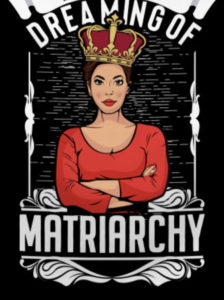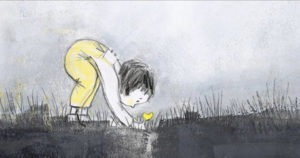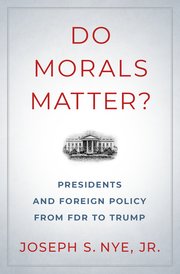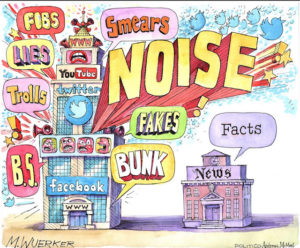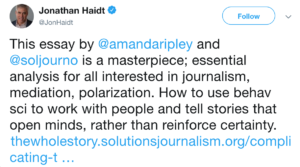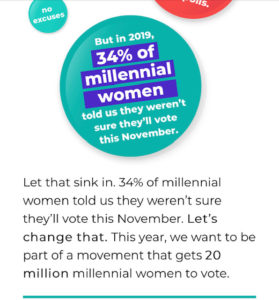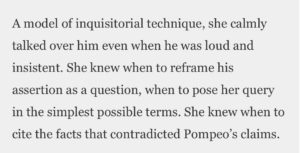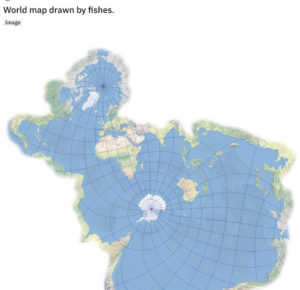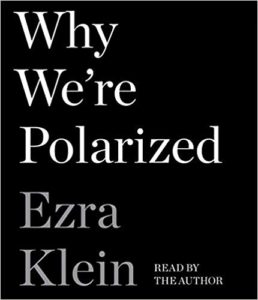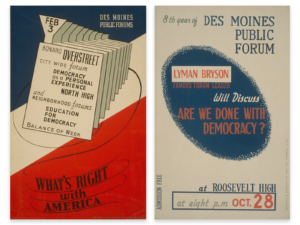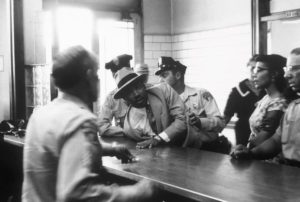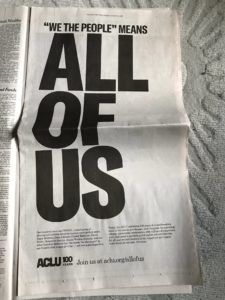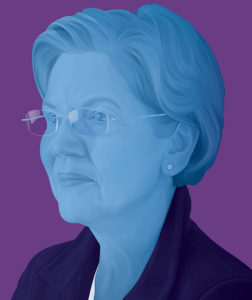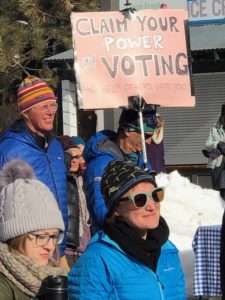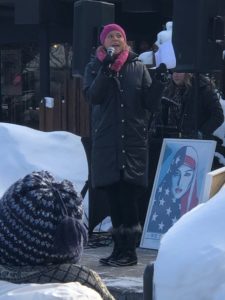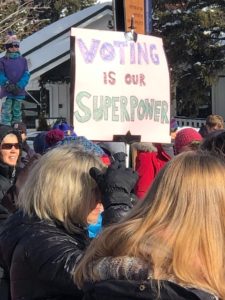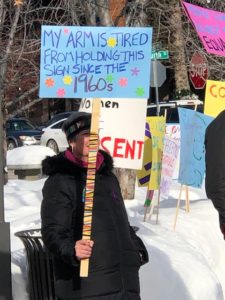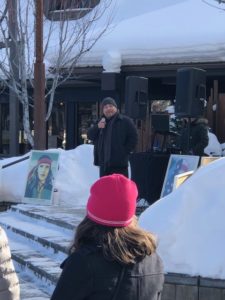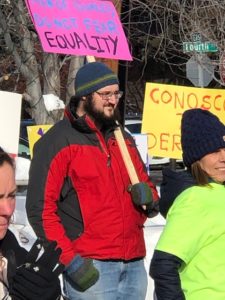?
January 31, 2020Our anahata place.
January 30, 2020[From the children’s book, My Heart, by Corinna Luyken.]
“We’re all at the mercy of the universe, or God, or fate, or chance, or whatever. And there’s nothing to be done about it. That’s what has been sitting in the back of my brain since Sunday.”
-Shea Serrano
https://www.theringer.com/nba/2020/1/29/21113814/kobe-bryant-gianna-fatherhood-death
Corinna Luyken:
There are days it’s a fence
between me and the world,
days it’s a whisper
that can barely be heard.
There are days it is broken,
but broken can mend,
and a heart that is closed
can still open again.
“In times like these…”
Oxford University Press: ‘Americans constantly make moral judgments about presidents and foreign policy. Unfortunately, many of these assessments are poorly thought through. A president is either praised for the moral clarity of his statements or judged solely on the results of their actions.
In Do Morals Matter?, Joseph S. Nye, Jr., one of the world’s leading scholars of international relations, provides a concise yet penetrating analysis of the role of ethics in US foreign policy during the American era after 1945. Nye works through each presidency from FDR to Trump and scores their foreign policy on three ethical dimensions of their intentions, the means they used, and the consequences of their decisions. Alongside this, he also evaluates their leadership qualities, elaborating on which approaches work and which ones do not. Regardless of a president’s policy preference, Nye shows that each one was not fully constrained by the structure of the system and actually had choices. He further notes the important ethical consequences of non-actions, such as Truman’s willingness to accept stalemate in Korea rather than use nuclear weapons.
Since we so often apply moral reasoning to foreign policy, Nye suggests how to do it better. Most importantly, presidents need to factor in both the political context and the availability of resources when deciding how to implement an ethical policy-especially in a future international system that presents not only great power competition from China and Russia, but a host of transnational threats: the illegal drug trade, infectious diseases, terrorism, cybercrime, and climate change.’
Contents:
Chapter 1: American Foreign Policy Ethical Traditions
Chapter 2: What is a Moral Foreign Policy?
Chapter 3: The Founders
Chapter 4: The Vietnam Era
Chapter 5: Post Vietnam
Chapter 7: The Unipolar Moment
Chapter 8: The 21st Century Diffusion of Power
Chapter 9: American Foreign Policy and the Future Order
“In times like these, it is important to appreciate the role that moral reasoning should play in foreign policy. This is especially true in a democracy, where sustaining global involvement requires support from citizens. Joe Nye is one of our foremost and engaging analysts of American diplomacy, and in this book he provides a clear-eyed guide for reengaging our moral compass.” — Walter Isaacson, Distinguished Fellow and Former CEO, Aspen Institute, and Professor of History, Tulane University
Persevere Beyond the Noise
https://www.emersoncollective.com/media-journalism/
AXIOS:
Emerson Collective initial launch partner for new NowThis division
NowThis, the millennial social video media outlet that’s part of Group Nine Media, will announce today the launch of NowThis Impact, a new editorial division that covers social issues and is underwritten by non-profits.
Why it matters: Underwriting editorial content is becoming a bigger trend as more philanthropy and non-profit money floods into journalism.
Details: Emerson Collective, a social change organization founded by Laurene Powell Jobs, will serve as the company’s launch partner.
- NowThis is looking to announce additional underwriters in coming months.
- It will work with issue experts to form content partnerships around certain issues that contain specific calls to action.
- The new product aims to meet the content appetites of NowThis’ audience of progressive and civically-minded millennials.
Be smart: It’s not the first time Group Nine has dabbled in “call-to-action” media/journalism. Its animal franchise, The Dodo, has in the past directed its audience to adoption resources.
Disclosure: Emerson Collective is an investor in Axios.
A C T I V E L I S T E N I N G
How To Listen To People You Disagree With
JOURNALISM
Early last year, Amanda Ripley had a revelation: she wasn’t a great listener. “It was hugely disturbing, because it’s my job,” she says. Ripley is a journalist who writes for The Atlantic and The Washington Post. She was studying conflict as a way to understand political polarization. Through her research, she realized that one key to understanding – and sometimes even resolving – conflict is whether the parties involved feel heard or not.
Most people aren’t great listeners – including doctors and bosses and all kinds of people whose job requires listening. As Ripley sees it, journalists are conditioned to over-simplify polarizing topics or complex characters so that readers can more easily understand the reporting. But in doing so, journalists flatten incredibly complicated, nuanced topics and leave people more entrenched than ever. Ripley wrote about this revelation in a viral piece last year, Complicating the Narratives.
Now, Ripley, an Emerson Collective Senior Fellow, is working with the Solutions Journalism Network to train journalists on how to conduct better interviews, particularly about polarizing subjects. Ripley’s work is part of a larger movement to bridge political and cultural divides and revive healthy democractic debate in the U.S.
Ripley recently spoke with Patrick D’Arcy, Emerson Collective’s Director of Fellowships and Portfolio Communications, about the broader implications of her research on conflict and the essential, overlooked role of listening in a healthy democracy – and the Thanksgiving dinner table.
People will put up with a lot of difference if they feel heard. People will open up to different ideas and opinions.
https://www.emersoncollective.com/articles/2019/11/how-to-listen-to-people-you-disagree-with/
Essay: https://thewholestory.solutionsjournalism.org/22-questions-that-complicate-the-narrative-47f2649efa0e
“What do you want to understand? Conversation techniques, interview questions, and stellar story examples born from a conflict mediation training — for journalists”
https://youtu.be/FtCfGswZSjg
~
CONSIDER
Senator Cory Booker:
“This is a moral moment. The moral vandal that’s in the White House right now, he may win this day, but he will not win our nation. We are America. We’re going to find a way to regroup, heal, [and] be the moral nation that I know we are.”
“Never stop being a prisoner of hope.”
Marianne Williamson:
“The president’s defense team arguing for what is basically unlimited presidential power is chilling. Even if they get away with it – which they probably will – it’s important to remember that we the voters are the ultimate judge and jury. We’ll deliver our judgement in November.”
Philosopher/author Martha Nussbaum:
“To be a good human being is to have a kind of openness to the world, an ability to trust uncertain things beyond your own control.”
Beloved Companion
’…And as he said these things, I felt my soul ascend and saw the first great bough which bears the fruit of Love and Compassion, the foundation of all things.’ -Mary Magdalene
The words we speak…
January 29, 2020Fleetwood Mac – “Landslide”
And I saw my reflection in the snow-covered hills/ Till the landslide brought me down.
Stevie Nicks was only 27 when she wrote one of the most poignant and astute meditations on how people change with time, and the fear of having to give up everything you’ve worked for.
The 40 best song lyrics, from Kendrick Lamar to Nirvana
‘Here is a thoroughly unscientific but completely from the heart list of the greatest lyrics ever. They run from the clever to the overblown, the gritty to the gaudy. What they all have in common is the ability to make you stop dead in your tracks and feel as if your world has briefly been tipped head over heels.’
-The Independent
November 1993
What else should I be
All apologies
And you could have it all/ My empire of dirt/ I will let you down/ I will make you hurt.
War, children, it’s just a shot away/ It’s just a shot away
At night I wake up with the sheets soaking wet/ And a freight train running through the/ Middle of my head / Only you can cool my desire
Well you know that I love to live with you/ but you make me forget so very much/ I forget to pray for the angels/ and then the angels forget to pray for us
The words we speak become the house we live in. -Hafiz
Contemplative Epistemology
January 28, 2020One spirit, at work in each, becomes their guide, led by more than mere human communication. -Day by Day with St. Francis
‘The primacy of love allows our knowing to be much humbler and more patient and helps us to recognize that other traditions—and other people—have much to teach us, and there is also much we can share with them. This stance of honest self-knowledge and deeper interiority, with the head (Scripture), the heart (Experience), and the body (Tradition) operating as one.
Contemplation allows us to see things in their wholeness and thus with respect (re-spect means to see a second time).
Only at a deeper level of contemplation do we begin to see the correlation between how we do anything and how we do everything else. We take the moment in front of us much more seriously and respectfully. We catch ourselves out of the corner of our eye, as it were, and our ego games are exposed and diminished.
Such knowing does not contradict the rational, but it’s much more holistic and inclusive. It might be called trans-rational although many think it is pre-rational. It goes where the rational mind cannot go, but then comes back to honor the rational, too…“contemplative epistemology”—a contemplative theory of how we know what we know.’
-Fr. Richard Rohr
Mary Louise Kelly
[Former Pen America Center president Francine Prose’s appreciation of Mary Louise Kelly in The Guardian.]
‘Mary Louise Kelly stood her ground…supporters of accountability journalism have the occasion to celebrate the courage of DC’s elite political journalists – Too many political reporters choose to pull their punches to maintain access.’
One brave political reporter raises the bar for her timid colleagues
Mary Louise Kelly stood her ground.
Kelly, who is the host of NPR’s All Things Considered and a veteran national security correspondent, made the best of her on-the-record interview with Secretary of State Mike Pompeo by posing tough questions and calling him out when he answered with lies.
Then, after he summoned her to his office, tried unsuccessfully to challenge her competence, and cursed her out, she went public.
It’s not often that supporters of accountability journalism have the occasion to celebrate the courage of Washington’s elite political journalists – and from NPR, no less. Too many political reporters choose to pull their punches to maintain access.
-Dan Froomkin/Press Watchers, An Intervention for Political Journalism
What is water?
“Great reminder that the way we look at the world is biased by where we look at it from.” -Dr. Joe Hanson
Why Are We Polarized?
Why Democrats Still Have to Appeal to the Center, but Republicans Don’t
Polarization has changed the two parties — just not in the same way.
By Ezra Klein
Mr. Klein is the author of “Why We’re Polarized.
American politics has been dominated by the Democratic and Republican Parties since the Civil War. That gives us the illusion of stability — that today’s political divisions cut roughly the same lines as yesteryear.
But in recent decades, the two parties have been changing, and fast. Those changes are ideological — the Democratic Party has moved left, and the Republican Party has moved right. But more fundamentally, those changes are compositional: Democrats have become more diverse, urban, young and secular, and the Republican Party has turned itself into a vehicle for whiter, older, more Christian and more rural voters.
This is the root cause of intensifying polarization: Our differences, both ideological and demographic, map onto our party divisions today in ways they didn’t in the past. But the changes have not affected the parties symmetrically.
Put simply, Democrats can’t win running the kinds of campaigns and deploying the kinds of tactics that succeed for Republicans. They can move to the left — and they are — but they can’t abandon the center or, given the geography of American politics, the center-right, and still hold power. Democrats are modestly, but importantly, restrained by diversity and democracy. Republicans are not.
Let’s start with diversity. Over the past 50 years, the Democratic and Republican coalitions have sorted by ideology, race, religion, geography and psychology. Not all sorting is the same. Sorting has made Democrats more diverse and Republicans more homogeneous. This is often played as a political weakness for Democrats. They’re a collection of interest groups, a party of list makers, an endless roll call. But diversity has played a crucial role in moderating the party’s response to polarization.
Appealing to Democrats requires appealing to a lot of different kinds of people with different interests. Republicans are overwhelmingly dependent on white voters. Democrats are a coalition of liberal whites, African-Americans, Hispanics, Asians and mixed-race voters. Republicans are overwhelmingly dependent on Christian voters. Democrats are a coalition of liberal and nonwhite Christians, Jews, Muslims, New Agers, agnostics, Buddhists and so on. Three-quarters of Republicans identify as conservative, while only half of Democrats call themselves liberals — and for Democrats, that’s a historically high level.
As a result, winning the Democratic primary means winning liberal whites in New Hampshire and traditionalist blacks in South Carolina. It means talking to Irish Catholics in Boston and atheists in San Francisco. It means inspiring liberals without arousing the fears of moderates. It’s important preparation for the difficult, pluralistic work of governing, in which the needs and concerns of many different groups must be balanced against one another.
The Democratic Party is not just more diverse in who it represents; it’s also more diverse in whom it listens to. A new Pew survey tested Democratic and Republican trust in 30 different media sources, ranging from left to right. Democrats trusted 22 of the 30 sources, including center-right outlets like The Wall Street Journal. Republicans trusted only seven of the 30 sources, with PBS, the BBC and The Wall Street Journal the only mainstream outlets with significant trust. (The other trusted sources, in case you were wondering, were Fox News, Sean Hannity, Rush Limbaugh and Breitbart.)
Fox News, in particular, holds a unique centrality in Republican media: Sixty-five percent of Republicans say they trust it, more than twice as many as trust any other outlet, and 60 percent of Republicans said they relied on Fox News in the previous week — again, more than twice the proportion who relied on any other news brand. Among Democrats, by contrast, the most-trusted and frequently consulted outlet was CNN.
The Democratic Party’s informational ecosystem combines mainstream sources that seek objectivity, liberal sources that push partiality and even some center-right sources with excellent reputations. On any given question, liberals trust in sources that pull them left and sources that pull them toward the center, in sources oriented toward escalation and sources oriented toward moderation, in sources that root their identity in a political movement and in sources that carefully tend a reputation for being antagonistic toward political movements.
There is no similar diversity in the Republican Party’s trusted informational ecosystem, which is heavily built around self-consciously conservative news sources. There should be a check on this sort of epistemic closure. A party that narrows the sources it listens to is also narrowing the voters it can speak to. And political parties ultimately want to win elections. Lose enough of them, enough times, and even the most stubborn ideologues will accept reform. Democracy, in other words, should discipline parties that close their informational ecosystems. But America isn’t a democracy.
Republicans control the White House, the Senate, the Supreme Court and a majority of governorships. Only the House is under Democratic control. And yet Democrats haven’t just won more votes in the House elections. They won more votes over the last three Senate elections, too. They won more votes in both the 2016 and 2000 presidential elections. But America’s political system counts states and districts rather than people, and the G.O.P.’s more rural coalition has a geographic advantage that offsets its popular disadvantage.
To win power, Democrats don’t just need to appeal to the voter in the middle. They need to appeal to voters to the right of the middle. When Democrats compete for the Senate, they are forced to appeal to an electorate that is far more conservative than the country as a whole. Similarly, gerrymandering and geography means that Democrats need to win a substantial majority in the House popular vote to take the gavel. And a recent study by Michael Geruso, Dean Spears and Ishaana Talesara calculates that the Republican Party’s Electoral College advantage means “Republicans should be expected to win 65 percent of presidential contests in which they narrowly lose the popular vote.”
The Republican Party, by contrast, can run campaigns aimed at a voter well to the right of the median American. Republicans have lost the popular vote in six of the last seven presidential elections. If they’d also lost six of the last seven presidential elections, they most likely would have overhauled their message and agenda. If Trump had lost in 2016, he — and the political style he represents — would have been discredited for blowing a winnable election. The Republican moderates who’d counseled more outreach to black and Hispanic voters would have been strengthened.
Instead, Republicans are trapped in a dangerous place: They represent a shrinking constituency that holds vast political power. That has injected an almost manic urgency into their strategy. Behind the party’s tactical extremism lurks an apocalyptic sense of political stakes. This was popularized in the infamous “Flight 93 Election” essay arguing that conservatives needed to embrace Trump, because if he failed, “death is certain.” You could hear its echoes in Attorney General William P. Barr’s recent speech, in which he argued that “the force, fervor and comprehensiveness of the assault on religion” poses a threat unlike any America has faced in the past. “This is not decay,” he warned, “it is organized destruction.”
This is why one of the few real hopes for depolarizing American politics is democratization. If Republicans couldn’t fall back on the distortions of the Electoral College, the geography of the United States Senate and the gerrymandering of House seats — if they had, in other words, to win over a majority of Americans — they would become a more moderate and diverse party. This is not a hypothetical: The country’s most popular governors are Charlie Baker in Massachusetts and Larry Hogan in Maryland. Both are Republicans governing, with majority support, in blue states.
We could do away with the Electoral College and gerrymandering; pass proportional representation and campaign finance reform; make voter registration automatic and give Washington, D.C., and Puerto Rico the political representation they deserve. But precisely because the Republican Party sees deepening democracy as a threat to its future, it will use the power it holds to block any moves in that direction.
The alternative to democratizing America is scarier than mere polarization: It is, eventually, a legitimacy crisis that could threaten the very foundation of our political system. By 2040, 70 percent of Americans will live in the 15 largest states. That means 70 percent of America will be represented by only 30 senators, while the other 30 percent of America will be represented by 70 senators.
It is not difficult to envision an America where Republicans consistently win the presidency despite rarely winning the popular vote, where they typically control both the House and the Senate despite rarely winning more votes than the Democrats, where their dominance of the Supreme Court is unquestioned and where all this power is used to buttress a system of partisan gerrymandering, pro-corporate campaign finance laws, strict voter identification requirements and anti-union legislation that further weakens Democrats’ electoral performance. Down that road lies true political crisis.
In the meantime, though, it’s important to recognize the truth about our system: Both parties have polarized, but in very different ways, and with very different consequences for American politics.
#
‘Don’t ask whether you need an umbrella. Go outside and stop the rain.’
January 27, 2020“It’s not too late,” Jimmy Stewart pleaded with Congress, rasping, exhausted, in “Mr. Smith Goes to Washington,” in 1939. “Great principles don’t get lost once they come to light.” It wasn’t too late. It’s still not too late.
New Dealers were trying to save the economy; they ended up saving democracy. They built a new America; they told a new American story. On New Deal projects, people from different parts of the country labored side by side, constructing roads and bridges and dams, everything from the Lincoln Tunnel to the Hoover Dam, joining together in a common endeavor, shoulder to the wheel, hand to the forge. Many of those public-works projects, like better transportation and better electrification, also brought far-flung communities, down to the littlest town or the remotest farm, into a national culture, one enriched with new funds for the arts, theatre, music, and storytelling. With radio, more than with any other technology of communication, before or since, Americans gained a sense of their shared suffering, and shared ideals: they listened to one another’s voices.
This didn’t happen by accident. Writers and actors and directors and broadcasters made it happen. They dedicated themselves to using the medium to bring people together. Beginning in 1938, for instance, F.D.R.’s Works Progress Administration produced a twenty-six-week radio-drama series for CBS called “Americans All, Immigrants All,” written by Gilbert Seldes, the former editor of The Dial. “What brought people to this country from the four corners of the earth?” a pamphlet distributed to schoolteachers explaining the series asked. “What gifts did they bear? What were their problems? What problems remain unsolved?” The finale celebrated the American experiment: “The story of magnificent adventure! The record of an unparalleled event in the history of mankind!”
The year 1935 happened to mark the centennial of the publication of Alexis de Tocqueville’s “Democracy in America,” an occasion that elicited still more lectures from European intellectuals coming to the United States to remark on its system of government and the character of its people, close on Tocqueville’s heels.
The endless train of academics were also called upon to contribute to the nation’s growing number of periodicals. In 1937, The New Republic, arguing that “at no time since the rise of political democracy have its tenets been so seriously challenged as they are today,” ran a series on “The Future of Democracy,” featuring pieces by the likes of Bertrand Russell and John Dewey. “Do you think that political democracy is now on the wane?” the editors asked each writer. The series’ lead contributor, the Italian philosopher Benedetto Croce, took issue with the question, as philosophers, thankfully, do. “I call this kind of question ‘meteorological,’ ” he grumbled. “It is like asking, ‘Do you think that it is going to rain today? Had I better take my umbrella?’ ” The trouble, Croce explained, is that political problems are not external forces beyond our control; they are forces within our control. “We need solely to make up our own minds and to act.”
Don’t ask whether you need an umbrella. Go outside and stop the rain.
Here are some of the sorts of people who went out and stopped the rain in the nineteen-thirties: schoolteachers, city councillors, librarians, poets, union organizers, artists, precinct workers, soldiers, civil-rights activists, and investigative reporters. They knew what they were prepared to defend and they defended it, even though they also knew that they risked attack from both the left and the right. Charles Beard (Mary Ritter’s husband) spoke out against the newspaper tycoon William Randolph Hearst, the Rupert Murdoch of his day, when he smeared scholars and teachers as Communists. “The people who are doing the most damage to American democracy are men like Charles A. Beard,” said a historian at Trinity College in Hartford, speaking at a high school on the subject of “Democracy and the Future,” and warning against reading Beard’s books—at a time when Nazis in Germany and Austria were burning “un-German” books in public squares. That did not exactly happen here, but in the nineteen-thirties four of five American superintendents of schools recommended assigning only those U.S. history textbooks which “omit any facts likely to arouse in the minds of the students question or doubt concerning the justice of our social order and government.”
The federal government stopped funding the forum program in 1941. Americans would take up their debate about the future of democracy, in a different form, only after the defeat of the Axis. For now, there was a war to fight. And there were still essays to publish, if not about the future, then about the present. In 1943, E. B. White got a letter in the mail, from the Writers’ War Board, asking him to write a statement about “The Meaning of Democracy.” He was a little weary of these pieces, but he knew how much they mattered. He wrote back, “Democracy is a request from a War Board, in the middle of a morning in the middle of a war, wanting to know what democracy is.” It meant something once. And, the thing is, it still does. ♦
[full article]
https://www.newyorker.com/magazine/2020/02/03/the-last-time-democracy-almost-died?
Docta Ignorancia
“Deep acceptance of ultimate mystery is ironically the best way to keep the mind and heart spaces always open and always growing.”
Fr. Richard Rohr, Center for Action & Contemplation
“We do need enough knowing to be able to hold our ground. We need a container and structure in which we can safely acknowledge that we do know a bit, in fact just enough to hold us until we are ready for a further knowing. In the meantime, we can happily exist in what some have called docta ignorantia or “learned ignorance.” Such people tend to be very happy and they also make a lot of other people happy.
A few years ago, a man from Colorado came to visit me. He said, “Richard, when you were still in Cincinnati, I gave you a dilemma that I was struggling with; and you told me something that has been my mantra for 30 years. You said to me, ‘You know, you don’t really need to know. It’s okay not to know.’”
‘Grace has released all the deepest energies of our spirit and assists us to climb to new and unsuspected heights. Nevertheless, our own faculties soon reach their limit. The intelligence can climb no higher into the sky. There is point where the mind bows down its fiery trajectory as if to acknowledge its limitations and proclaim the infinite supremacy of the unattainable…’
Love flings out a hundred burning stars, acts of all kinds, expressing everything that is best in (wo)man’s spirit, and the soul spends itself in drifting fires that glorify the name of God…Gaia…while they fall earthward and die away in the night wind!’
-Thomas Merton
Perhaps ‘love’ is beyond definition here, more the Tao of existence, in that defining it beyond all there is, is reducing it to knowing, rather than acknowledging we do not know…only ‘enough knowing.’ “You know, we really don’t need to know.” .d
Mark Nepo:
“When we bare our inwardness fully, exposing our strengths and frailties alike, we discover a kinship in all living things, and from this kinship a kindness moves through us and between us. The mystery is that being authentic is the only thing that reveals to us our kinship with life.”
I crave authenticity. There is so little.
The only one who has heard all of it…
January 23, 2020…is you.
“Jerry Garcia performed thousands of times, and he was the only one who heard every performance.
The same is true for the work you’ve created, the writing you’ve done, the noise in your head–you’re the only person who has heard every bit of it.
Tell us what we need to know. Not because you need to hear yourself repeat it, but because you believe we need to hear it.
Take your time and lay it out for us, without worrying about whether or not we’ve heard you say it before. We probably haven’t.”
~Seth Godin
‘…and it bends towards justice.’
January 20, 2020‘Superman could bend steel with his bare hands.
Along the way, we’ve been sold on the idea that difficult tasks ought to be left to heroes, often from somewhere far away or from long ago. That it’s up to them, whoever ‘them’ is.
The Rev. Martin Luther King Jr. quoted Theodore Parker: “The arc of the moral universe is long, but it bends towards justice.”
But it’s not bending itself. And it’s not waiting for someone from away to bend it either.
It’s on us. Even when it doesn’t work (yet). Even when it’s difficult. Even when it’s inconvenient.
Our culture is the result of a trillion tiny acts, taken by billions of people, every day. Each of them can seem insignificant, but all of them add up, one way or the other, to the change we each live through.
Sometimes it takes a hero like Dr. King to wake us up and remind us of how much power we actually have.
And now it’s our turn. It always has been.’
-Seth Godin
“When will this end?”
January 18, 2020WHEN WILL THIS END? WHEN ENOUGH PEOPLE CARE.
If you have been affected in any way by the event in Las Vegas on October 1 2017, the Vegas Strong Resiliency Center is there to help.
Vegas Strong Resiliency Center
www.vegasstrongrc.org
The Vegas Strong Resiliency Center is a place of healing and support dedicated to serving as a multi-agency resource and referral center for residents, visitors and responders affected by the shooting at the Route 91 Harvest Festival. The Center is managed by Legal Aid Center of Southern Nevada, and is staffed by knowledgeable and caring professionals to help people access resources to help them build strength and resiliency in the aftermath of this incident.
Please contact or visit the following organizations to find out how you can help or learn more about putting an end to senseless gun violence, or to help survivors and their families.
Giffords
www.giffords.org
Led by former Congresswoman Gabrielle Giffords, our organization works to tackle America’s gun violence crisis. We are on a mission to save lives from gun violence by shifting culture, changing policies, and challenging injustice. A safer America is possible — one where our children can grow up without fear of gun violence — and that is why we’re in this fight.
Brady United Against Gun Violence
www.bradyunited.org
A comprehensive approach to preventing gun violence, Brady is committed to delivering life-saving change and comprehensive solutions to the American people. We owe it to ourselves, our families, and our communities to keep all Americans safe.
Everytown For Gun Safety
WWW.EVERYTOWN.ORG
Everytown is a movement of Americans working together to end gun violence and build safer communities. Gun violence touches every town in America.
Sandy Hook Promise
www.sandyhookpromise.org
Sandy Hook Promise’s mission is to create a culture engaged in preventing shootings, violence, and other harmful acts in schools. Sandy Hook Promise is a moderate, above-the-politics organization that supports sensible program and policy solutions that address the “human side” of gun violence by preventing individuals from ever getting to the point of picking up a firearm to hurt themselves or others. Their words, actions, and impact nationwide are intended to honor all victims of gun violence by turning our tragedy into a moment of transformation.
March For Our Lives
www.marchforourlives.com
March For Our Lives’ mission is to harness the power of young people across the country to fight for sensible gun violence prevention policies that save lives.
Survivors Empowered:
www.survivorsempowered.org
Survivors Empowered is an organization founded by Sandy and Lonnie Phillips after the slaughter of their daughter, Jessica Redfield Ghawi and eleven others in the Aurora Colorado Theater Mass Shooting in 2012. Their original non-profit, Jessi’s Message, has grown into Survivors Empowered – a national organization created By Survivors, For Survivors, Empowering Survivors. They provide support and referrals for services to survivors of violence, and connect them to a support network of other survivors in their area. They also train survivors how to tell their stories in a compelling way to speak to the issue of violence in their communities.
CEA Fund For August 3rd Survivors Educational Needs:
https://pdnfoundation.org/give-to-a-fund/cea-survivors-educational-needs
This fund was established for the children who lost parents due to the tragic event in El Paso, TX on August 3 with support to continue their education.
#WomensMarch2020
And if a storm should come
And if you face a wave
That may be the chance for you to be saved.
-Cat Stevens
Fr. Richard Rohr:
The spiral feeds upon itself. The individual zealot tries to rise above “the rotten, decadent system,” [2] as Dorothy Day called it, by attempting solutions that usually attack the symptoms. That attempt may make the individual and the state feel moral, but it rarely touches the underlying causes. Think of the policies that led the United States to build a wall at the border instead of honestly asking why people want to come to begin with. Why was a wall terrible in Berlin but salvific in Juarez, San Diego, and the present state of Israel? We criminalize the actions of desperate individuals, but rarely question the global economic systems and untouchable corporations that keep such unequal circumstances in place for their own gain.
In dangerous times like these we have to produce generations of dedicated, courageous, and creative contemplative activists who will join [the conscious collective] to bring radical healing and change to this damaged world, before it’s too late.
We Persist.
If you stick a knife in my back 9 inches and pull it out 6 inches, there’s no progress. If you pull it all the way out, that’s not progress.
The progress is healing the wound that the blow made.
-Malcolm X
[LA]
Keep listening.
January 17, 2020When someone disagrees with you today, stay present, listen, and then let them solve the problem.
Problems are transformed when we are present.
-Judith Hanson Lasater, PhD
“By contemplation, we mean the deliberate seeking of God through a willingness to detach from the passing self, the tyranny of emotions, the addiction to self-image, and the false promises of the world. Action, as we are using the word, means a decisive commitment toward involvement and engagement in the social order. Issues will not be resolved by mere reflection, discussion, or even prayer, nor will they be resolved only by protests, boycotts, or even, unfortunately by voting the “right” way. Rather, God “works together with” all those who love (see Romans 8:28).”
The only way out and through—for either side of any dualism, including that between action and contemplation—is a kind of universal forgiveness of Reality for being what it is; it thus becomes the bonding glue of grace which heals all the separations which law, religion, or logic can never finally or fully restore.
-Fr. Richard Rohr
?1.20.2020
January 16, 2020“It really boils down to this: that all life is interrelated. We are all caught in an inescapable network of mutuality, tied in a single garment of destiny. Whatever affects one directly, affects all indirectly. We are made to live together because of the interrelated structure of reality.”
– Dr. Martin Luther King Jr, 1967.
Prayer, contemplation, is freedom and affirmation growing out of nothingness into love. Prayer is the flowering of our inmost freedom, in response to the Word. Prayer is not only dialogue with God: it is the communication of our freedom with ultimate freedom in infinite spirit. It is the elevation of our limited freedom into the infinite freedom of the divine spirit and of the divine love. Prayer is the encounter of our freedom with all the all-embracing charity which knows no limit and knows no obstacle. Prayer is an emergence into this area of infinite freedom. Prayer, contemplation, then, is not an abject procedure, though sometimes it may spring from our abjection. But prayer is not something that is meant to maintain us in servility and helplessness. We take stock of our own wretchedness at the beginning of prayer, contemplation, in order to rise beyond it and above it to infinite freedom and infinite creative love in God.
-Thomas Merton, Contemplation in a World of Action, 1965
When do we
become one with earth and stars?
It is not achieved, a young friend, by being in love,
however vibrant that makes your voice.
Learn to forget you sang like that. It passes.
Truly to sing takes another kind of breath.
A breath in the void. A shudder in God. A wind.
-Rilke, Sonnets to Orpheus I, 3
Because Jesus did not directly attack the religious and institutional systems of his time until his final action against the money changers in the temple [1], his primary social justice critique and action are a disappointment to most radicals and social activists. Jesus’ social program, as far as I can see, was a quiet refusal to participate in almost all external power structures or domination systems. Once we have been told this, we see it everywhere in the four Gospels. Jesus chose a very simple lifestyle which kept him from being constantly co-opted by those very structures, which we can call the sin system.
The city of Sepphoris was the Roman regional capital of Galilee and the center for most money, jobs, and power in the region where Jesus lived. It was just nine miles from Jesus’ hometown of Nazareth. Yet there is no record that Jesus ever went there, nor is it mentioned once in the New Testament, even though he and his father, Joseph, were carpenters or “workmen” and Jesus traveled through many other cities much farther away. He also seems to have avoided the money system as much as possible by using “a common purse” (John 12:6, 13:29)—voluntary “communism,” we might say.
Jesus was finally a full victim of the systems that he refused to worship. Is this not a much more coherent explanation of why Jesus died?
What can we learn from Jesus’ life about how we might address the systems of inequity and oppression in our own cultures? One lesson seems to me that we have to “start local.”
He simply goes around doing what he knows to be right, which he surely discovered during his long periods of solitude and silence (a form of contemplation) on the outskirts of town, and others begin to join him.
-Fr. Richard Rohr, Center for Action and Contemplation
